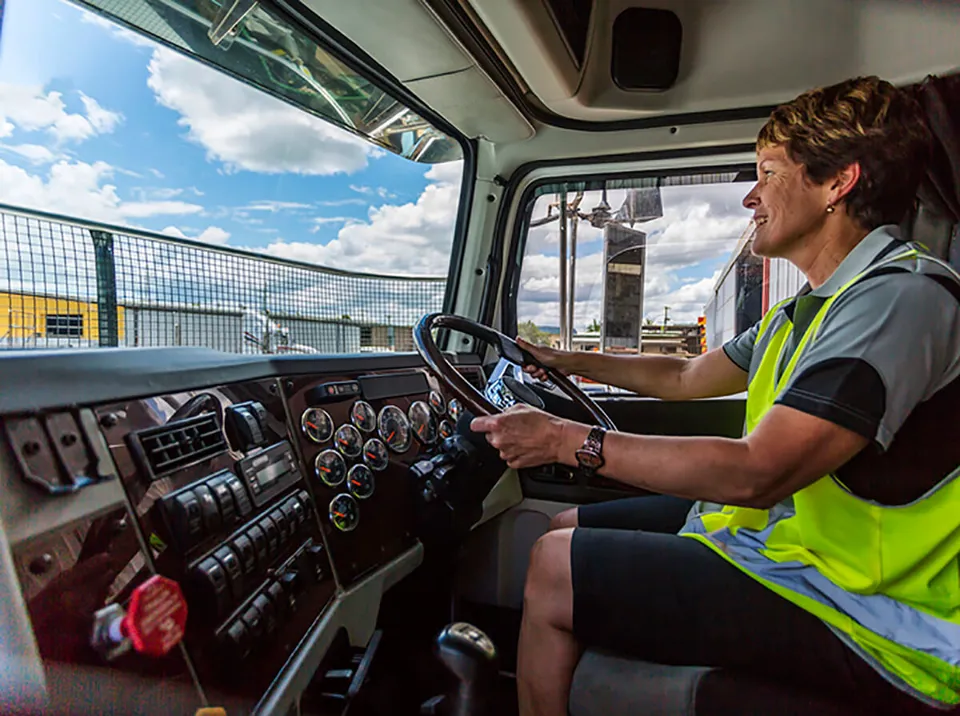The Association of Driven Vehicle Delivery Agents (ADVDA) has launched a certificate of driver competence in an effort to raise standards.
ADVDA members collect and deliver hundreds of vehicles to and from fleet operators and their drivers each week.
ADVDA chairman Matt Sirrell told members at the association’s annual general meeting on July 1, in Old Trafford, Manchester: “The ADVDA’s logo must stand for something.”
The qualification will only be attained after successfully completing an intensive induction process, designed to test drivers’ knowledge of ADVDA’s code of conduct.
It will teach drivers the correct way of inspecting a vehicle, customer service techniques, training on handheld technology, vehicle and customer specific handover techniques, product knowledge and specialist vehicle equipment training.
The qualification will also test knowledge of ADVDA’s guidelines, an area of learning that Sirrell said would be subject to a continual audit.
The move is part of the wider goal of ADVDA to raise the perception and standards of the industry.
Steve Hyland, partner at vehicle collection and delivery service Hyway Logistics said: “Historically, not enough checks on the quality of those joining the industry at a driving level have been put in place.”
He also felt the need for quality is particularly strong when dealing with fleets. He explained: “When we deliver to fleets, we’re the only face-to-face contact our customer will have throughout the process. We’re the face of the leasing company, the manufacturer and the dealer.”
Sirrell added: “All current members have received unanimous feedback from all of their customers with regard to the ethos that the association is trying to promote.”
He is also advocating the use of digital task management software products to manage and record handovers, which will allow drivers to update customers of their estimated time of arrival, as well as issuing them with e-receipts.
“They can also offer efficient, accurate condition reporting and damage capturing,” said Sirrell.
However, recognising that ADVDA is not able to enforce the use of the technology, he added: “We can promote the use of software by securing favourable commercial terms with providers to our membership.”
Sirrell admitted that members of ADVDA using the technology were “in the minority” at present.
ADVDA has negotiated a number of discounts on behalf of its members, including from task management software provider TBS Mobility.
Hyland said: “Vehicle delivery, as an industry, can only offer good customer service if it evolves with the times and technology. Anything which moves more companies into the 21st century is a good thing.”
Meanwhile, Shell is now offering members a discount of 3% on its fuel card, reducing costs on one of their biggest overheads. While ADVDA was not able to guarantee that the savings would be passed on to customers, Sirrell said: “This is a commercial decision for each member, but we would hope that these savings are passed on.”
Hyland added: “Opportunity to pass savings on should be welcomed – if not to reduce the cost of service, to add value by using the saving to add other services that would be of benefit to the customer.”
The meeting is ADVDA’s second AGM since its launch in September 2014. It has since amassed 12 members, climbing from four at the time of the inaugural AGM.
While that figure may not seem particularly large, Sirrell said that ADVDA now represents around 1,500 drivers.
He eventually wants to attract around 40 members. “The market is probably in the region of 100 companies, some of which do not support the practices promoted by the association. We hope to attract around 40%,” he said.
ADVDA works with a number of FN50 companies. Sirrell’s own company, Intertechnic, also has relationships with several major rental companies, including Europcar, Avis, Enterprise-Rent-A-Car and Thrifty.

















Login to comment
Comments
No comments have been made yet.